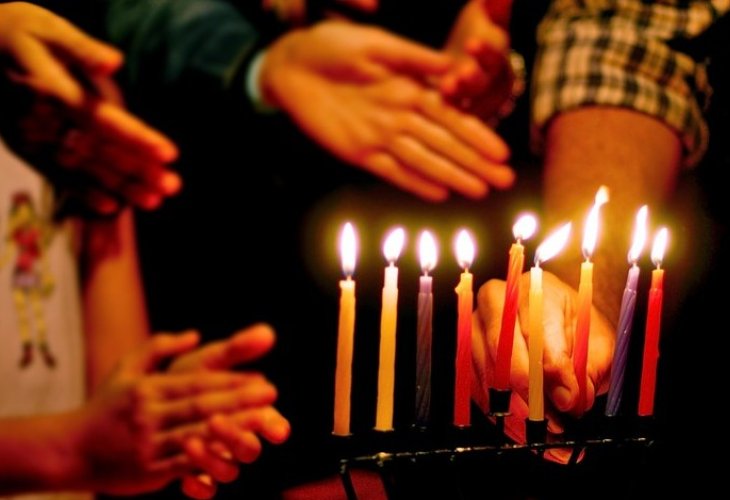Personal Stories
A Story for Shabbat: A Thank You for a Mischievous Act
A mischievous act during candle lighting brings unexpected joy to a tzaddik who sees Hashem’s hand even in a spilled menorah

Rabbi Yochanan of Tolna was a truly holy and extraordinary man. Despite his greatness in Torah and good deeds, he was known for his deep humility. He never put his own honor before the wellbeing of another Jew even the smallest child.
Each year on the first night of Chanukah, Rabbi Yochanan would share a story that had deeply moved him, one that touched on the mysteries of life and death:
“The holy Rabbi Chaim of Atinia, the son of Rabbi Baruch Hager of Vizhnitz, once shared a question that had troubled him for much of his life. A Jew spends his entire life preparing his soul, gathering spiritual strength for the World to Come. This world is only temporary, but the next world, the world of souls is eternal.
If that’s the case, then the moment of transition between this world and the next, the moment a soul leaves the body is one of the most meaningful a Jew will ever experience. On every holiday, we say the blessing of Shehecheyanu to thank Hashem for reaching this special time. But why don’t we say Shehecheyanu at the time of death, when we’ve finally reached the moment we’ve been preparing for our whole lives?
This question stayed with Rabbi Chaim until one year on the first night of Chanukah. After lighting the candles and reciting the Shehecheyanu blessing, he quietly passed away. Only afterward did his students realize that he had known. Through his holy spirit, he had seen the moment coming and had found a way to say Shehecheyanu at the very time his soul left this world.”
Every Chanukah, Rabbi Yochanan of Tolna would retell this story.
And then, on the first night of Chanukah in the year 1999 (5759), right after he lit the first candle and recited the Shehecheyanu, Rabbi Yochanan himself returned his soul to its Creator. Only then did his followers understand the deep meaning behind the story he had shared for so many years.
This story captures not only Rabbi Yochanan’s deep spiritual vision but also his humility, which was a defining part of who he was.
One particular Chanukah, his humility and warmth were revealed in a more down-to-earth moment.
The beit midrash (study hall) of the Tzaddik of Tolna was full. Many of his students and followers had gathered to witness the lighting of the Chanukah candles. For them, this wasn’t just a ritual—it was a holy experience, one that gave them strength, inspiration, and a deeper connection to Hashem.
The Rebbe stood silently by the menorah, his eyes closed. His mind was far above, engaged in lofty, hidden spiritual work. After some time, he opened his eyes, recited the blessings, and lit the candles. The congregation began to recite Tehillim (Psalms) together, as was their custom after lighting.
Suddenly, the holy atmosphere was broken by a loud crash.
A little boy, not paying attention, ran too close to the menorah. He bumped into it, knocking it over. The glass cups shattered. Oil spilled everywhere.
Most people would expect the Rebbe to be upset. After all, this child had “ruined” the mitzvah. But instead, Rabbi Yochanan turned to the frightened child with a warm smile and said gently, “Thank you.”
Everyone was stunned. And then the Rebbe explained.
“The halachah (Jewish law) says that once a person lights the Chanukah candles, if they are extinguished through no fault of their own, there’s no obligation to relight them. ‘Kavsa ein zakuk lah’, if it goes out, you’re not required to fix it.
Until now, I’ve never had the opportunity to fulfill that specific halachah in practice. And only because of you, my dear child, I’ve now had that merit.”
What others would have seen as a ruined moment, Rabbi Yochanan saw as a gift from Hashem. A chance to fulfill another part of Torah. A reminder that even in chaos, holiness can be found.
And a gentle lesson for everyone there about humility, love, and seeing the good in every moment.

